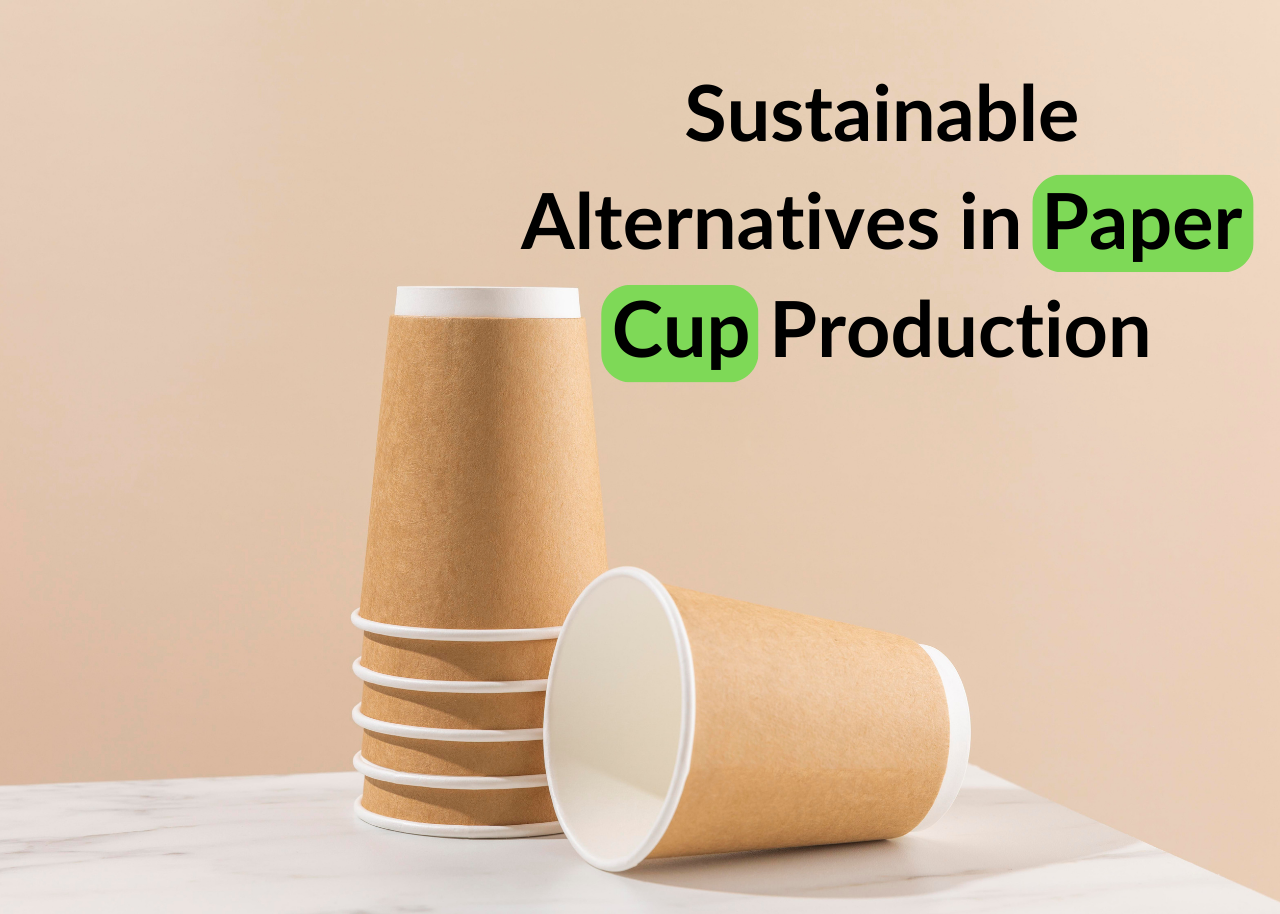Home | Blog

Paper cup production has transitioned to a large-scale industry due to the rise of global demand for disposable containers. Nevertheless, there is ample cause for concern regarding the environmental impact of traditional paper cups with conventional coatings and constituents.
While the application of PE is absolutely integral to making the cup waterproof, it is notoriously difficult to recycle, and significant volumes (billions) of cups go to landfills each year. Eco-friendly coatings and products are on the rise in paper cup production as manufacturers' environmental awareness rises.
In order to produce disposable paper cup manufacture, material substitutions and new processes are needed by the industry.
This article examines the crucial journey of disposable paper cup manufacture and outlines the primary alternatives and changes happening in the industry for all paper cup producers trying to make a difference. This is an important area for any disposable cup manufacturers to focus attention on.
The most significant breakthrough in disposable paper cup manufacture has occurred with the use of bio-based and biodegradable coatings. These coatings, usually made with polylactic acid (PLA), which can be made from a renewable material like corn starch or sugarcane, provide the same liquid resistance as plastic, yet they are compostable and biodegradable.
So, following use, these cups can be sent to industrial composting facilities, at which point they will break down into nutrient-rich soil, rather than live in a landfill for decades. The use of these bio-coatings is an important distinction for any modern paper cup manufacturer; no one is making paper cups without bio-coatings.
While paper is a recyclable product, there is an opportunity to use raw materials a little more responsibly.
The sustainability of paper cup production goes further than the raw materials. It includes the entire process of producing the product, namely water use, energy use, and waste. For example, a paper cup manufacturer in Hyderabad may have a closed-loop water system, whereas a paper cup manufacturer in Bangalore may be producing power for their plant from the sun. Today, it is the combination of those factors that best embodies a disposable paper cup manufacturer.
Consumer awareness and business choices are also driving the demand for sustainable cups. Coffee shops and restaurants are actively partnering with suppliers who are practicing sustainable solutions to meet customer expectations. This demand has a ripple effect for more paper cup makers to initiate sustainable innovation.
Even though paper cups are not reusable products, the partnership between companies and an eco-friendly paper cup manufacturer in Jaipur or an Indore paper cup manufacturer is what drives sustainable practices to become the new normal in the industry. Partnerships like these demonstrate that they can be successful and profitable while contributing to a better planet.
Progress continues to be made towards the sustainability of paper cup production. This includes new product technologies, especially those that use water-based coatings, which are fully repulpable and biodegradable, making them easier to recycle.
The commitment of paper cup manufacturers in Rajkot and other manufacturers across the country to new product technologies reflects a shift in the consciousness of some in the paper cup industry. These changes give hope for the day disposable cups can be guilt-free, and the convenience of single-use products can be reconciled with a green conscience. The future for paper cup manufacturers appears promising for them to lead this movement for a more sustainable future.
The push towards sustainability in paper cup production is not a trend, but an evolution that is both needed by the environment and by consumers. Paper cup manufacturers are working to reduce the environmental impact of single-use products using innovative substrates, bio-coatings, and sustainable production practices.
Together, the paper cup manufacturers, the companies, and the consumers are creating a world where that quick cup of coffee does not need to be paid for by the world. It's proof that through vision and ingenuity, even the humble disposable product can be made into a beacon of ecological awareness. The question isn't so much if we can create an actually sustainable cup anymore, but when the whole disposable cup manufacturers can adopt these necessary reforms.
Q1: Why is the conventional paper cup hard to recycle?
A1: Paper cups used to be traditional, but paper cups are hard to recycle as they have a thin cover of polyethylene (PE) plastic lining to make them water-resistant. This plastic coating taints the paper pulp when recycled and is not feasible in most recycling centers.
Q2: What is being done to make new paper cups more eco-friendly?
A2: New paper cups become greener through the use of new materials such as bamboo or sugarcane bagasse and non-plastic linings, which are replaced with bio-based, compostable coatings, e.g., PLA. The cups become biodegradable and, in some cases, compostable.
Q3: Is there a particular paper cup maker in major cities that has been concentrating on being green?
A3: Yes, there are plenty of paper cup manufacturers in Hyderabad, paper cup manufacturers in Bangalore, and other large cities such as Mumbai and Jaipur who are emphasizing eco-friendly practices, utilizing environment-friendly materials, and delivering eco-friendly products to cater to the increasing market demand.
Q4: What is the contribution of a consumer towards sustainable paper cup production?
A4: Consumers have an important role in deciding to buy paper cups from manufacturers that utilize sustainable materials and supporting companies that use environmentally friendly disposable cups. Their demand keeps manufacturers going with their sustainable innovations.
Q5: What are some of the long-term advantages of transitioning to sustainable paper cup production?
A5: The long-term advantages are great landfill waste reduction, less dependence on non-renewable resources, less carbon footprint for the business, and a healthier environment because biodegradable materials are used.